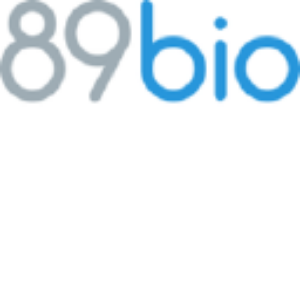89bio Presents Additional Analysis of Phase 1b/2a NASH Study at the Annual ENDO 2021 Conference
89bio, Inc. (Nasdaq: ETNB) announced promising results from its Phase 1b/2a study of BIO89-100, a treatment for nonalcoholic steatohepatitis (NASH). Data revealed up to 15% reduction in liver volume and 65% reduction in liver fat volume over 13 weeks. The favorable safety profile showed side effects comparable to placebo. The findings will be presented at ENDO 2021, emphasizing the potential of BIO89-100 for NASH and severe hypertriglyceridemia. NASH affects over 16 million adults in the U.S., with growing prevalence expected by 2030.
- BIO89-100 showed up to 15% reduction in liver volume and up to 65% reduction in liver fat volume in treated patients.
- The treatment demonstrated a favorable safety and tolerability profile with side effects similar to placebo.
- Data supports further development of BIO89-100 for NASH and severe hypertriglyceridemia.
- None.
Insights
Analyzing...
New analysis shows BIO89-100 meaningfully reduces liver fat volume and liver volume in patients with NASH
SAN FRANCISCO, March 20, 2021 (GLOBE NEWSWIRE) -- 89bio, Inc. (Nasdaq: ETNB), a clinical-stage biopharmaceutical company focused on the development and commercialization of innovative therapies for the treatment of liver and cardio-metabolic diseases, today announced additional positive data from its Phase 1b/2a study of BIO89-100, a long-acting glycoPEGylated FGF21 analog, in patients with nonalcoholic steatohepatitis (NASH). The data will be presented in an on-demand poster presentation at ENDO 2021, the Endocrine Society’s annual meeting taking place virtually from March 20-23, 2021.
“Excess liver fat is an important driver of disease progression for people living with NASH and can be associated with increased risk for cardiovascular events and even death,” said Hank Mansbach, chief medical officer of 89bio. “We are encouraged by new analyses from our Phase 1b/2a study that show BIO89-100 demonstrated clinically meaningful reductions in both liver fat volume and liver volume overall across all dosing groups. The data continues to highlight the promising clinical profile of BIO89-100 and supports further development of BIO89-100 in NASH and also severe hypertriglyceridemia.”
New analyses of the Phase 1b/2a study data showed BIO89-100 treatment resulted in significant reductions in liver volume of up to
The poster presentation details are as follows:
Session: P02 - Integrated Physiology of Obesity and Metabolic Disease
Poster Presentation: #53
Poster Title: BIO89-100 Demonstrated Robust Reductions in Liver Fat and Liver Fat Volume (LFV) by MRI-PDFF, Favorable Tolerability and Potential for Weekly (QW) or Every 2 Weeks (Q2W) Dosing in a Phase 1b/2a Placebo-Controlled, Double-Blind, Multiple Ascending Dose Study in NASH
Presenting Author: Juan Pablo Frias, M.D.
A copy of the poster presentation is also available for download via the 89bio website.
About NASH
NASH is the most advanced stage of nonalcoholic fatty liver disease (NAFLD). It is a complex metabolic disorder that causes fat buildup in the liver, as well as inflammation and eventually fibrosis, and it can worsen to cirrhosis and liver failure. NASH affects more than 16 million adults in the United States, and by 2030 its prevalence is predicted to increase by 63 percent. The exact cause of NASH is unknown, but it is commonly found in people with obesity and type 2 diabetes. While there are currently no approved treatments, the biopharmaceutical industry is actively involved in addressing this unmet medical need.
About the Phase 1b/2a Study
This clinical study was a multicenter, randomized, double-blind, placebo-controlled, multiple ascending dose-ranging trial. It was designed to assess the safety, tolerability, and PK properties of BIO89-100 as well as change in liver fat measured by MRI-PDFF and key biomarker assessments in patients with biopsy-proven NASH with fibrosis or patients with phenotypical NASH (PNASH). PNASH was defined as patients with steatosis greater than
About BIO89-100
BIO89-100 is a glycoPEGylated analog of FGF21 being developed for the treatment of NASH. 89bio has optimally engineered BIO89-100 using a proprietary glycoPEGylation technology to balance efficacy and longer dosing interval. Recent Phase 1b/2a data show BIO89-100 demonstrated a favorable safety and tolerability profile and robust reductions in liver fat and key lipid markers when dosed weekly (QW) or once every two weeks (Q2W). BIO89-100 is also being developed for the treatment of severe hypertriglyceridemia (SHTG) and is currently in a Phase 2 trial.
About 89bio
89bio is a clinical-stage biopharmaceutical company focused on the development and commercialization of innovative therapies for the treatment of liver and cardio-metabolic diseases. The company’s lead product candidate, BIO89-100, is a specifically engineered glycoPEGylated analog of FGF21. BIO89-100 is being developed for the treatment of nonalcoholic steatohepatitis (NASH) and severe hypertriglyceridemia (SHTG). 89bio is headquartered in San Francisco with operations in Herzliya, Israel.
Investor Contact:
Ryan Martins
Chief Financial Officer
investors@89bio.com
Media Contact:
Peter Duckler
773-343-3069
pduckler@w2ogroup.com







